
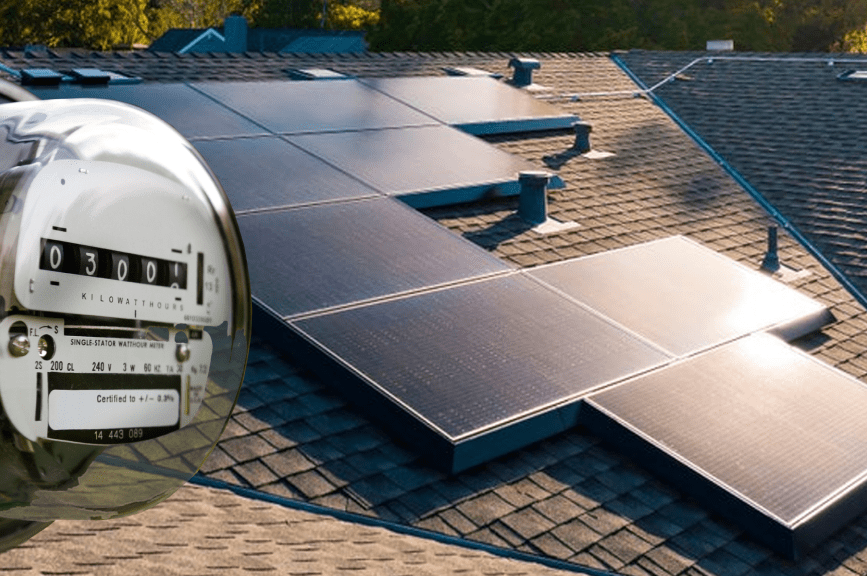
The big picture: Many people think getting solar means (finally) severing their relationship with the utility company, but that’s simply not the case.
- If you have home solar panels, you’ll still get two bills — one from your solar provider, and one from your utility company.
- In almost all cases, your system must remain connected to the local utility grid, which provides you with electricity at night or during times of low production
Yes, but: Your average monthly electric bill with solar panels will typically be lower once your system starts producing energy.
- If you pair your solar panels with a battery storage system, any excess solar energy can be stored for later use, which can further reduce the amount of electricity you need from the grid.
- Your utility may also offer net energy (NEM) metering — or another system of credit — for the excess energy produced by your panels that’s sent back to the grid.
Since every utility is different and receiving another bill can be confusing, let’s explore the factors that go into an average monthly electric bill with solar panels — and then explain how solar billing works specifically for Sunnova home energy plans.
Why Do I Have an Electric Bill with Solar Panels?
You may still get an electric bill after installing solar panels due to numerous factors, including:
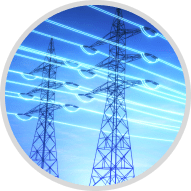
Grid connection charges
Simply having your home connected to the grid often comes with fixed service or non-bypassable charges — including fees and taxes — which are part of your electric bill, regardless of solar energy production.

Energy consumption habits
If your energy usage exceeds what your solar panels produce, especially during high-demand periods, you'll need additional power from the grid, leading to charges on your electric bill.
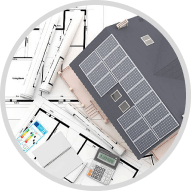
Solar system size & efficiency
If the system is not properly sized to meet your home's energy needs, or if it's not operating efficiently, it may not generate enough electricity to significantly reduce your grid energy consumption.

Seasonal variation
Solar production can be influenced by seasonal changes, with shorter days and less sunlight in the winter reducing solar output. During these times, your reliance on grid electricity may increase, leading to higher electric bills.
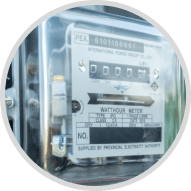
Net metering & underproduction
With NEM and other programs that provide credits for energy you put back into the grid, when your solar panels produce more electricity than you use, you receive credits for that excess energy. But if your solar system doesn't produce enough to cover your entire energy usage, you'll draw power from the grid and incur charges.
Average Monthly Electric Bill with Solar Panels
There are three parts of your utility bill to focus on when you have solar panels.

- Service Charges, Fees & Taxes. This is a flat rate for being connected to the utility, along with any associated taxes and fees. This will typically not change after going solar.
- Energy Charges. This section shows your usage of utility-sourced electricity and its cost. With solar panels, your energy charges will be dependent on the factors listed above.
- Net Metering Statement. If your utility provides credits for net metering, this will help offset your cost of utility electricity. This may show a monthly or annual snapshot of your credits.
- Your utility electric bill charges with NEM = (kilowatt-hours (kWh) of electricity pulled from your utility x utility rate) – (kWh of excess solar production sent back to the utility x NEM credit rate).
- While many utilities bill solar customers every month, some — like PG&E in California — send annual true-up statements instead. This means you’ll only pay for service charges, fees and taxes monthly, and get one bill per year for any grid-drawn electricity.
Sunnova Bill Pay Explained
If you’re a Sunnova customer, you will likely receive two or more bills:
- A bill from Sunnova based on your adaptive home energy plan
- A bill from your utility company, including any NEM credits if eligible
- A bill(s) from Sunnova if you add battery storage or other home energy upgrades after solar
Here is how each Sunnova financing option may affect your solar billing:
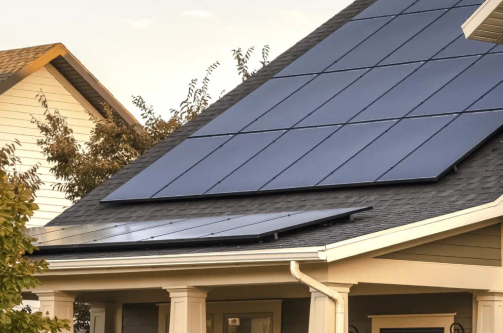

Easy Plan™ Power Purchase Agreement (PPA)
There are two options through which you can pay for a Sunnova PPA:
- Variable billing — your solar energy bill varies month to month based on the amount of energy your system produces.
- Balanced billing — although the energy your system produces will vary, you’ll have flat monthly payments set by Sunnova.
With both plans, you have the option to make a partial or full upfront payment to reduce your solar rate and save even more on your energy costs.
In the spring or summer, solar PPA customers may see a higher solar bill, due to the increase in sunlight and, therefore, solar production.

Easy Own Plan™
With Sunnova’s Easy Own Plan™, you’ll get a loan or finance agreement for your equipment and pay steady monthly payments to own your system. This means you may be eligible to collect solar tax credits and incentives.*
If you have a solar loan, you may also see a higher utility bill depending on the season — even as your solar payments stay the same — due to the increase in home energy usage.

Sunnova Energy Guarantee
If your Sunnova solar panels have an energy guarantee,* we ensure your system will produce the estimated amount of energy outlined in your contract — or we’ll credit or refund you the difference.
With our lease and own plans, your system’s production will be evaluated annually to validate the guarantee, beginning on the third anniversary of your service agreement. If it underperforms, we’ll issue a true-up to refund or credit the difference.
Our PPA with balanced billing will have an annual true-up — we’ll evaluate your system’s performance every year unless you paid upfront in full, in which case your production will be evaluated at the end of your up to 25-year protection plan period.
For all Sunnova energy plans with a production guarantee, credits will continue to roll over for the duration of your agreement.
Straightforward Solar Billing with Sunnova

We hope this article uncomplicated your understanding of how solar panels work with your electric bill. Rising utility costs may be constant across the country, but with Sunnova you can help protect yourself from unpredictability, take control of your energy costs and lock in a low rate for up to 25 years.
Ready to make the sunshine work for you?
Seasonal Solar Panel Performance
Solar panels perform well during the summer but do solar panels work in winter? A common misconception is that bad weather will offset the saving gained by solar energy. Learn about solar power generation in summer vs winter and how weather and seasonal changes may affect your home solar system’s energy production. Keep an eye on all of our latest developments.

